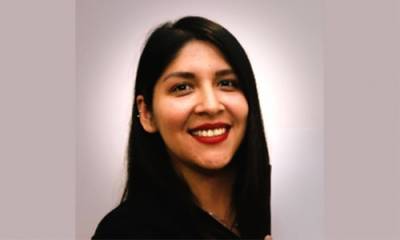Lorena graduated from our Energy, Technology and Climate Policy MPA in 2020. She is currently working as a Legal Specialist at the Ministry of Environment of Peru.

I was a lawyer working for the Peruvian energy regulator whilst it was the chair of the International Confederation of Energy Regulators, a body consisting of over two hundred national regulators from around the world.
Why did you choose to study at STEaPP?
As a public servant in the energy sector, I understood the importance of comprehensive and interdisciplinary energy policies. The MPA at STEaPP is a very specialised programme that gave me the skills and useful tools for policy-making and public administration to address the climate change challenges in the energy sector.
The MPA had courses designed specifically for the problems faced by public servants, such as gathering evidence and the implementation of policies that adjust to the uncertainties of our society.
What was your favourite aspect of the MPA?
Definitively the group project was my favourite part of the degree! It was the opportunity to apply my learning into a real scenario, as well as develop my soft skills. I was lucky to be in a group with five outstanding students from Europe, Asia, and Latin America with international experience in the energy and climate fields. As part of the project we worked with ARUP, an international firm, about the implementation of the climate emergency declaration in UK local councils. It included data collection such as interviews with local authorities that also helped me to understand the gaps and challenges facing the UK public administration.
How has the STEaPP MPA shaped your experiences since leaving UCL?
It has been crucial in two aspects. First, my current job requires an integrated approach to preserve and sustainable manage natural resources, and to implement United Nations and the World Bank projects in Peru to mitigate climate change, sustainable forestry, and biodiversity conservation. My STEaPP courses and group project allowed me to work in an interdisciplinary environment – for example my group project included people who studied international relations, business, and engineering.
Second, the collaborative atmosphere encouraged me to launch Peru Young Energy Professionals, a Peruvian organisation which seeks to empower and promote the participation of new generations in the development and improvement of the sustainable energy sector in Peru.
What is the one piece of advice you would give to future candidates?
Use all the opportunities that UCL offers you! I really enjoyed my time as a Green Impact Project Assistant that I did outside my course, as it gave me the chance to work with other UCL departments on how to make the university more sustainable.
 Close
Close

